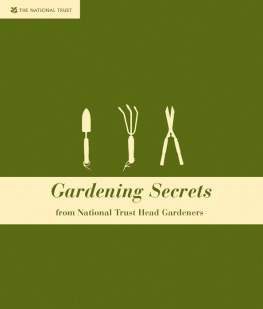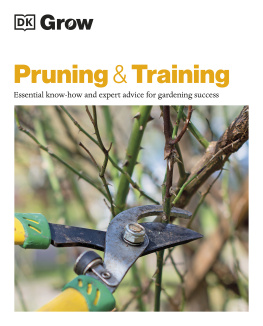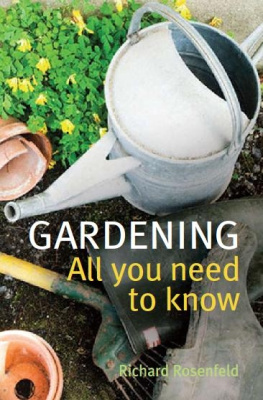The Truth About Garden Remedies

THE Truth ABOUT Garden Remedies
What Works, What Doesnt, and Why
Jeff Gillman
Foreword by Michael A. Dirr

To my girls Suzanne and Catherine
and to Hy and Ellen Gillman,
who got me started in life,
and Dan Horton, who got me
started in horticulture
Mention of trademark, proprietary product, or vendor does not constitute a guarantee or warranty of the product by the publisher or author and does not imply its approval to the exclusion of other products or vendors. Reasonable efforts have been made to publish reliable data and information, but the author and publisher cannot assume responsibility for the validity of all materials or for the consequences of their use.
Copyright 2008 by Jeff Gillman. All rights reserved.
Published in 2008 by
Timber Press, Inc.
The Haseltine Building
133 S.W. Second Avenue, Suite 450
Portland, Oregon 97204-3527, U.S.A.
www.timberpress.com
For contact information regarding editorial, marketing, sales, and distribution in the United Kingdom, see www.timberpress.co.uk .
Printed in the United States of America
Library of Congress Cataloging-in-Publication Data
Gillman, Jeff, 1969
The truth about garden remedies : what works, what doesnt & why / Jeff Gillman ; foreword by Michael A. Dirr.
p. cm.
This book is an edition of a previous book (978-0-88192-748-1) but with a new cover, foreword and ISBN.
Includes bibliographical references and index.
ISBN-13: 978-0-88192-912-6
1. Garden pestsBiological control. 2. Plant diseases. 3. Plants, Protection of. 4. Organic gardening. I. Title.
SB975.G55 2008
635.04dc22
2007037066
A catalog record for this book is also available from the British Library.
Contents
Product groupings
Foreword
ATRANSFORMATION of seismic consequencean entomologist who became a horticulturistsuch was the journey of Dr. Jeff Gillman. Jeffs wonderful book, The Truth About Garden Remedies, reflects his penetrating penchant for truth-seeking. Akin to a heat-seeking missile, Jeff has the innate acumen to ask universal questions, propose hypotheses, develop research protocols, and systematically analyze data.
I served as co-major advisor during Jeffs Ph.D. program at the University of Georgia. Jeff loved bugs and plants, was fascinated by interactions, and explained morphologically and chemically how mites and butterfly bushes coexist (or dont). He squeezed significant, worthwhile data from petri dishes, filter papers, and cotton swabs. He was the master of research that answered profound questions. His Georgia education eventually spirited him to the University of Minnesota, where he is now a tenured associate professor.
Jeffs book is an eye-opening, mind-bending, yet eminently understandable discussion of gardening myths, snake-oil remedies, old wives (or husbands) tales, and hocus-pocus. Jeff explains the gardening myths, then, utilizing mini-experiments and research literature, either supports or debunks the fables. Debunking wins out over the course of the book.
A prime example of one of these garden myths is the use of beer as a fertilizer: you make a solution of one tablespoon of beer per gallon of water and apply it to the lawn, vegetable, or flower garden. Jeffs research determined that the alcohol inhibits plant growth, with beer being better consumed by the gardener than applied to the garden.
The Truth About Garden Remedies is a great read, with humor, pearls of wisdom, common sense, and garden lore intertwined. Voodoo horticulture and gardening will never be given credence thanks to Jeffs biological detective work. In this vein, his conclusions save the would-be practitioner time and money. Enjoy one of the best gardening tours ever assembled on paper.
MICHAEL A. DIRR
University of Georgia
Preface
EVERYONE seems to have a product, a suggestion, or a little-known secret for making your garden the envy of the neighborhood. Sometimes these amazing tidbits are in a book of household remedies, sometimes they are incorporated into a new product, and sometimes they are offered as an old, forgotten pearl of wisdom in a local newspaper or on a Web site. But how are we to know if these miracle products and plant cures work? Are we just supposed to take someones word for it? Is there some way to find out whether were applying useful techniques or using our garden as a guinea pig?
This book was created for those of you who dont buy what self-professed experts are selling just because everyone else does. Its for those of you who want the best for your garden but are skeptical of unproven claims. And it is especially for those of you who think its wise to understand why and how something works before slathering it on the plants that took you so long to grow and that you take so much pride in caring for. For you there is good news. This book offers information on various products and practices that the gurus recommend, and it investigates these claims critically, sometimes with general knowledge, sometimes with scholarly articles, and sometimes with original research specifically designed to get to the truth. This book isnt intended to tell you how to garden. Rather, it investigates what the compounds on the garden center shelf or those that you make yourself in a home-brewed concoction will do to and for your plants. In the end, after perusing the pages herein, you will be able to distinguish between the garden remedies that work and those that are merely hearsay. Whats more, you will be armed with a knowledge of the underlying principles behind each remedys success or failure, allowing you to take a more objective and scientific approach to the advice you hear in the future.
The garden gurus and me
The first time I stood in front of a group of gardeners to speak about pesticides, I was asked a question about using a home-brewed remedy for controlling insects (I dont even remember which one). I froze. I was startled that someone would ask me about a home-brewed remedy when there were so many good commercial remedies out there. I was also embarrassed, as people with freshly minted Ph.D.s usually are when posed with a question they cannot answer relating to their subject area. I was especially embarrassed because, having graduate degrees in both entomology and horticulture, I thought I knew everything. Boy was I wrong. But that question was just the start of my encounters with homemade and unusual remedies for garden problems. I was, and still am, continually asked by master gardeners, homeowners, and students about the value of the tips and techniques they see on TV, on the Web, or in old books. As these questions come up, I do my best to answer them. Sometimes I succeed, and sometimes I dont. But when I dont, I have a new subject to research when I get back to the office. I wish it were possible to cover all the home-brewed helpers that are swimming around out there either on the internet, in magazines, or in books. Unfortunately this is impossible for obvious reasons.
The barrage of questions I am asked about remedies seems never ending, and although they come from a variety of sources, they most commonly originate from advice given by what I like to call garden gurus. What is a garden guru? Well, to me a garden guru is a good (usually great) gardener who considers him- or herself something of an expert in most areas that have to do with gardening, who likes to give out information and recommendations, and, most importantly, who does not really understand the science behind the information or recommendations he or she is giving. Garden gurus are usually neighbors or gardening experts on TV. They are often home-taught wizards trying to teach us a thing or two about growing a plant without resorting to any of those recommendations that university professors think up. No way, they can get the same results with stuff right out of the cabinet! Truth be told, cabinet cures can actually work. But many have drawbacks, including being dangerous for the environment and dangerous to your plants health. Here I will admit that I have been a garden guru, too. I have quickly given incorrect advice based on some harebrained notion from the top of my head rather than advice based on sound research. Lets face it: most of us have been a garden guru at one point or another in our lives, and those who claim they havent are probably either lying or else they have never given gardening advice. I tend to be hard on the garden gurus (including myself) because I get tired of seeing the end results of their brand of advice, including burned leaves, black roots, and dead plants. Let me step back for a moment, however, and give these people some credit. While they may bring questionable practices to the table, they also provide excitement, energy, and creativity to the gardening world, something that cannot always be said for university professors like me.
Next page









